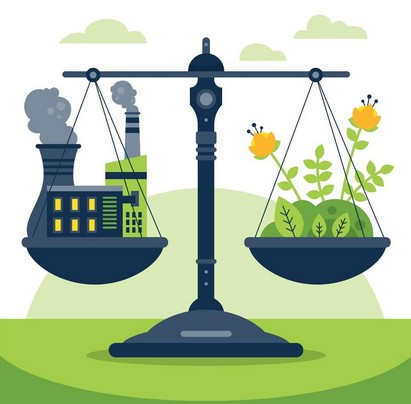The energy transition is essential to tackle climate change and promote a sustainable future. However, this process raises questions of social justice, in particular who bears the costs and who benefits from the changes. .
This article examines the rise of energy poverty in the face of incentives for decentralised production, the role of energy communities and the challenges of territorial inequalities, highlighting the importance of youth participation in promoting equitable and sustainable solutions.
The transition to renewable energy sources can, paradoxically, exacerbate energy poverty if the costs are passed on to final consumers, especially the most vulnerable.
The implementation of clean technologies requires significant investment and, without appropriate policies, the financial burden may fall disproportionately on low-income households.
On the other hand, incentives for decentralised energy production, such as self-consumption and energy communities, offer opportunities to reduce costs and increase consumers’ energy autonomy. In Portugal, Decree-Law No. 162/2019, amended by Decree-Law No. 15/2022, establishes the legal framework for the creation of Renewable Energy Communities (CER) and Collective Self-Consumption Projects (ACC), allowing different actors to produce, consume and share renewable energy.
Energy communities and new models of production and consumption
Energy communities are emerging as an innovative solution to democratise access to clean energy. These initiatives enable citizens, businesses and local authorities to collaborate in the production and management of renewable energy, promoting energy efficiency and reducing dependence on traditional suppliers.
In Portugal, examples such as the Telheiras Renewable Energy Community and the island of Culatra demonstrate the potential of these initiatives. These communities not only contribute to environmental sustainability, but also promote social and economic cohesion by actively involving citizens in the energy transition.
Territorial inequalities and the risk of exclusion
Differences between rural and urban areas are a major challenge in the energy transition. Rural areas, often characterised by lower population density and less developed infrastructure, may find it more difficult to access renewable energy technologies and financing for sustainable projects. A Eurofound report highlights that people living in rural areas often feel neglected by governments and have lower levels of trust in institutions. To prevent the exclusion of these communities, it is crucial to implement policies that ensure adequate investment and promote equitable access to the benefits of the energy transition.
The role of young people in advocating for fair and sustainable solutions
Young people have a key role to play in promoting a just and sustainable energy transition. Through social movements, community initiatives and participation in decision-making processes, they have been active agents in advocating for policies that take into account not only environmental sustainability but also social equity.
Their capacity for mobilisation and innovation is essential to put pressure on governments and businesses to adopt practices that ensure the energy transition leaves no one behind.
The energy transition poses complex challenges that go beyond simply switching energy sources. To be truly sustainable, it must integrate social justice considerations to ensure that costs and benefits are shared equitably. Promoting decentralised production, supporting energy communities, addressing territorial inequalities and actively involving young people are crucial steps to ensure that the energy transition contributes to a more just and inclusive future.
Complementary activities
Supporting documents
Videos:
Links:
- Energia sustentável – a intervenção da UE | União Europeia
- A energia comunitária em Portugal na transição para as renováveis: uma caracterização preliminar – Blogue SHIFT
- Colmatar o fosso entre as zonas rurais e urbanas: combater as desigualdades e capacitar as comunidades | European Foundation for the Improvement of Living and Working Conditions
- Transição energética sim, mas com atenção aos preços e justiça social, defendem eurodeputados – Expresso


